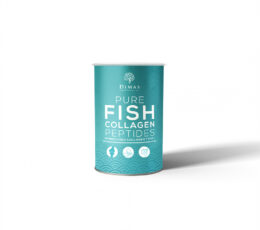- September 20, 2024
- Health
Collagen may have potential benefits for people with osteopenia or osteoarthritis, although more research is needed to fully understand its effects. Here are some ways collagen can help:
Osteopenia is a condition where bone mineral density is lower than normal, but not low enough to be classified as osteoporosis. Collagen supplementation has been shown to increase bone mineral density and reduce fracture risk in postmenopausal women, who are at increased risk of osteopenia and osteoporosis.
Osteoarthritis is a common form of arthritis that occurs when the cartilage that cushions the joints wears down over time, leading to pain, stiffness and inflammation. Collagen supplementation can help reduce joint pain and inflammation in people with osteoarthritis by providing structural support to the joints and reducing inflammation in the body.
Collagen is a major component of the cartilage and is essential for its strength and flexibility. Research has shown that collagen supplementation can help improve the health and thickness of cartilage in people with osteoarthritis.
SCIENTIFIC RESEARCH AND THE BENEFITS OF COLLAGEN
Several studies show that collagen supplementation can help improve bone mineral density and reduce fracture risk in postmenopausal women with:
- Osteopenia – A randomized controlled trial published in the journal Nutrients in 2018 found that postmenopausal women who took a daily collagen peptide supplement for 12 months had a significant increase in bone mineral density compared to those who took a placebo.
- Osteoporosis – Collagen supplementation can help reduce joint pain and inflammation and improve cartilage health.
A review of several studies published in the journal Current Medical Research and Opinion in 2017 found that collagen supplementation can help improve pain and mobility in people with osteoarthritis. Another study published in the journal Nutrition Research in 2012 found that collagen supplementation improved cartilage thickness and health in people with knee osteoarthritis.
Collagen supplements may act as mild pain relief and improve joint function in people with osteoarthritis of the knee [1][2][3][4]. Collagen has been extensively studied as a potential treatment for osteoarthritis [3]. A small observational study found that hydrolyzed collagen significantly reduced pain and stiffness in people with osteoarthritis of the knee [3]. However, the beneficial effects of collagen for the treatment of osteoarthritis are currently controversial [5]. There is limited evidence to suggest that collagen may help with osteopenia [1]. It is important to note that collagen supplements should not be considered a substitute for conventional medical treatment and care [1][3].
Although these potential benefits are promising, more research is needed to fully understand the effects of collagen supplementation on osteopenia and osteoarthritis. It’s also important to note that collagen supplements should not be used as a substitute for medical treatment, and people with these conditions should consult their healthcare provider before starting any new supplement regimen.
WHY DOES DIMAS COLLAGEN GIVE BETTER RESULTS?
The Dimas Hydrolyzed Collagen Peptides are a form of collagen that has been broken down into smaller fragments, or peptides, through a process called hydrolysis. This makes it easier for the body to absorb and use it, compared to other forms of collagen.
Hydrolyzed collagen peptides are particularly beneficial for skin, hair and nail health as they can improve skin hydration, elasticity and firmness and promote healthy hair and nail growth. They can also help support joint health by reducing inflammation and improving joint mobility.
Another advantage of hydrolyzed collagen peptides is that they are odorless, tasteless, and easy to incorporate into your diet. You can add them to smoothies, coffee or other drinks, or use them in cooking and baking to increase the protein content of your meals.
Overall, hydrolyzed collagen peptides are a convenient and effective way to increase the collagen levels and promote overall health and well-being.
SOURCES:
[1] https://www.webmd.com/diet/collagen-health-benefits
[2] https://www.healthline.com/nutrition/collagen
[4] https://www.verywellhealth.com/do-collagen-supplements-help-arthritis-5101585
[5] https://pubmed.ncbi.nlm.nih.gov/30368550/


